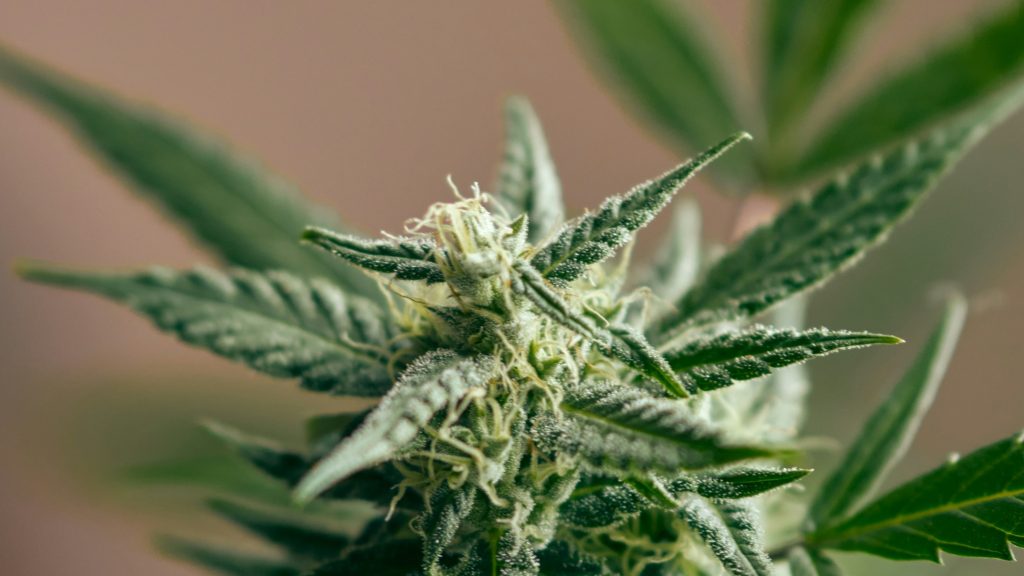
This article is the third in a series on social justice and the cannabis industry in Rhode Island. The first two articles on social justice and cannabis in this series appeared in previous issues of Motif.
Our perspectives on many aspects of life are often related to our vocations. The cannabis industry in Rhode Island now has a diverse array of legalized vocations. The people who grow legal weed are — in my view — a central, lynch-pin component of all things cannabis in Rhode Island. This assertion is based on the simple fact that were it not for people who grow legal weed in Rhode Island, there would be no legal weed in the Ocean State.
Collins Omolo is the chief science officer at Emerald Leaf Organics (ELO), a business established in 2017 to grow cannabis for medical consumers. Today, ELO is a prominent Rhode Island cannabis grower that provides high-quality products for both medical and recreational users.
I corresponded with Omolo about a few social justice and cannabis issues facing Rhode Island growers. Our correspondence has been edited for length and clarity.
Lenny Brennan (Motif): Is social justice part of your professional cannabis landscape?
Collins Omolo: Yes. ELO is partnered with the Last Prisoners Project, a national, nonpartisan, nonprofit organization whose main objective is to free the tens of thousands of individuals still unjustly imprisoned for cannabis violations and create front-end systemic reform to the criminal legal system. ELO also continues to work with the RI Social Equity Redraft Committee and co-sponsored a panel for elevating marginalized voices and the impact of the war on drugs in RI. At ELO, diversity, equity, and inclusion initiatives have been placed within the ownership structure, hiring practices, and business management.
LB: What elements of social justice can be incorporated in the cannabis industry in the near term, such as the next year or two?
CO: There are four things that could be done in the near term to enhance elements of social justice in the Rhode Island cannabis industry:
Reserve licenses for the communities directly affected by the war on drugs and redefine social justice as it relates to the cannabis industry. Provide social-equity applicants with reduced barriers to entry (i.e. waive application and licensing fees) and provisional licensing to get a jump start on the new wave of licensing and traction within the market before other general licenses are awarded.
High licensing costs on top of expensive buildout costs creates a significant barrier to entry for people in communities that have been disproportionately impacted by the war on drugs thus anything that can reduce this barrier will be helpful to low-income people trying to get into the cannabis industry.
The short-term fixes from a business regulation and legislation standpoint are:
Access to banking for cannabis businesses; because cannabis is still classified as a Schedule 1 substance, banks are unwilling to work with and lend capital to businesses that are cannabis-touching. This provides an even larger barrier to entry for applicants and licenses.
Allowing cannabis businesses to deduct expenses they currently aren’t allowed to deduct. The tax code (Internal Revenue Code Section 280E) especially hurts those that are operating in the dispensing side of the industry because they are unable to deduct expenses before taxable income. The IRS still views state-legalized cannabis businesses as entities trafficking an illegal substance. This stance needs to change for businesses to be able to turn a more significant profit by paying less taxes.
Rescheduling or legalizing cannabis in the short term could significantly hurt smaller businesses, especially small mom-and-pop shops and operations. If cannabis could be sold across state lines, large Multi-State Operations (MSO) will flood the market and take a loss leader strategy with the purpose of cutting out competition from small businesses to increase the MSO’s market share.
LB: What elements of social justice will take longer to be incorporated in the cannabis industry, such as the next two to five years?
CO: Two things should be done:
Cannabis Tax money should be redistributed to aid the communities directly affected by the war on drugs. As well as aid Last Prisoners Project or any other organizations whose main object is to free people who are incarcerated for non-violent crimes.
It disgusts me that our most impoverished school districts are where people of color are the majority. I believe education is fundamental in the development of an individual thus the tax money should also aid in reforming such schools to stop the continuous cycle of poverty among people of color.
LB: Thanks for your perspectives and insights on these important issues related to social justice and cannabis in Rhode Island.
Lenny Brennan is a Rhode Island native who recently returned to the Ocean State after a 45-year career as a wildlife science researcher and professor.